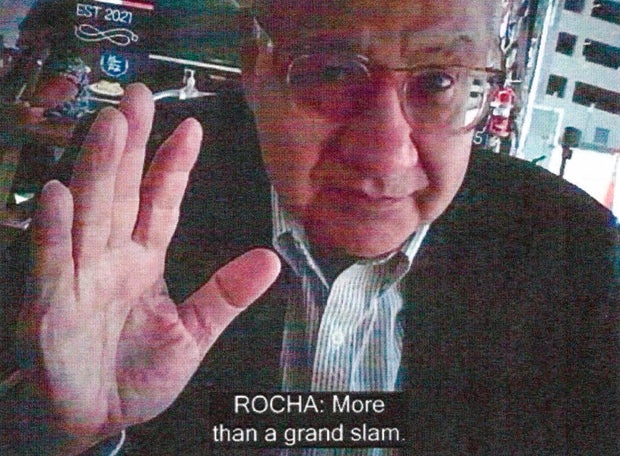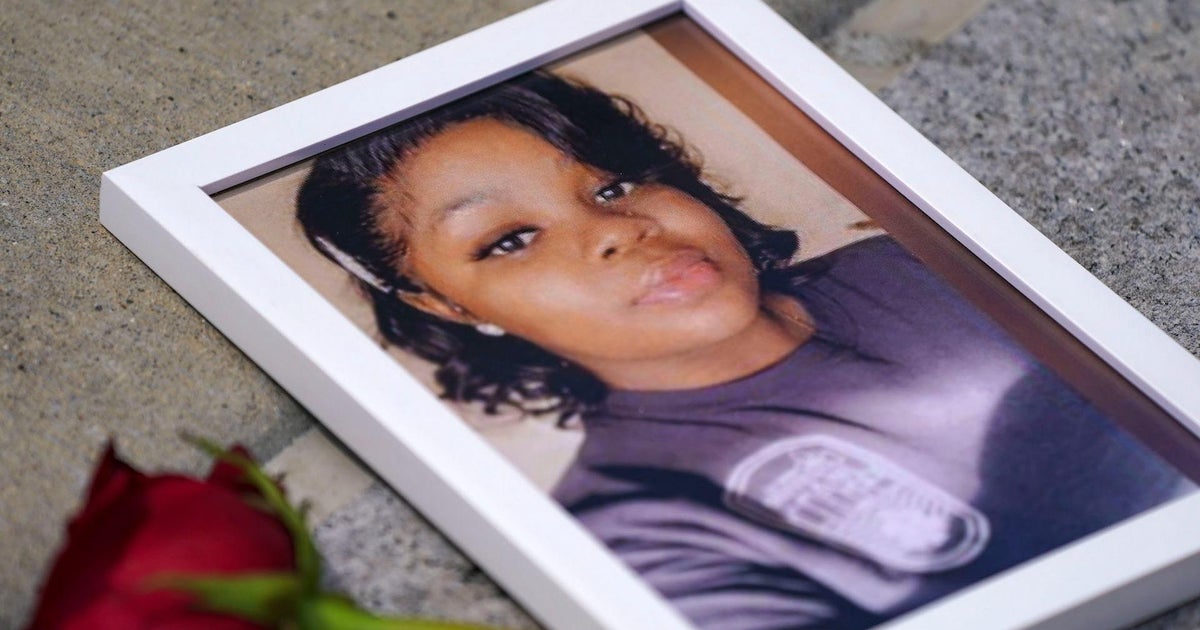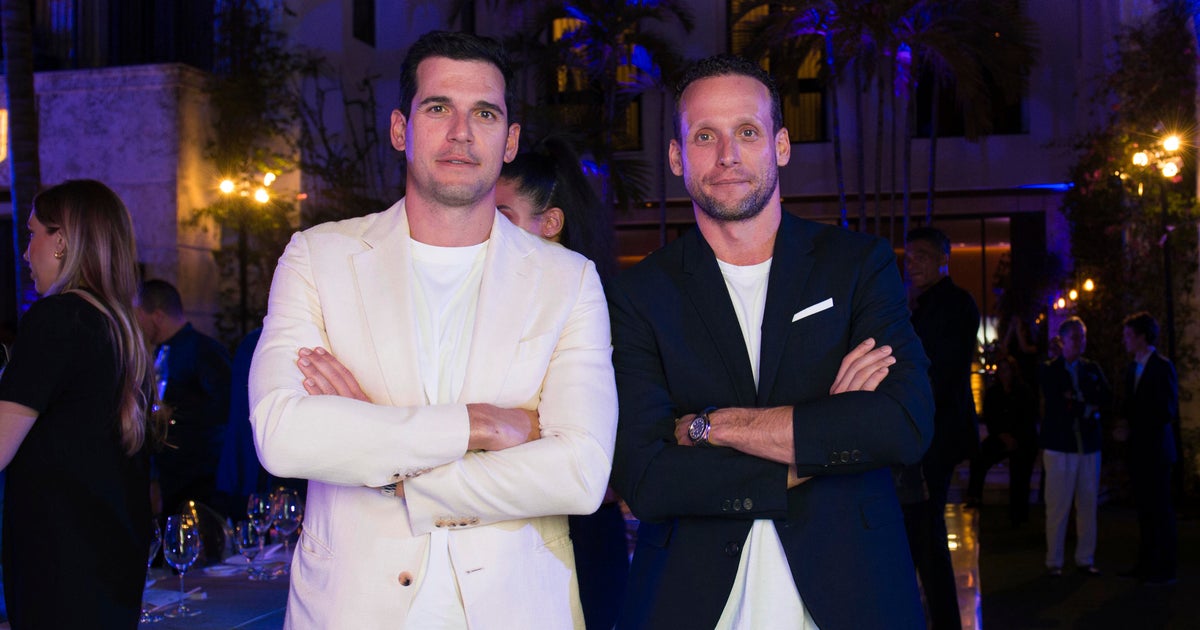CBS News
Victor Manuel Rocha, ex-U.S. ambassador who spied for Cuba for decades, sentenced to 15 years
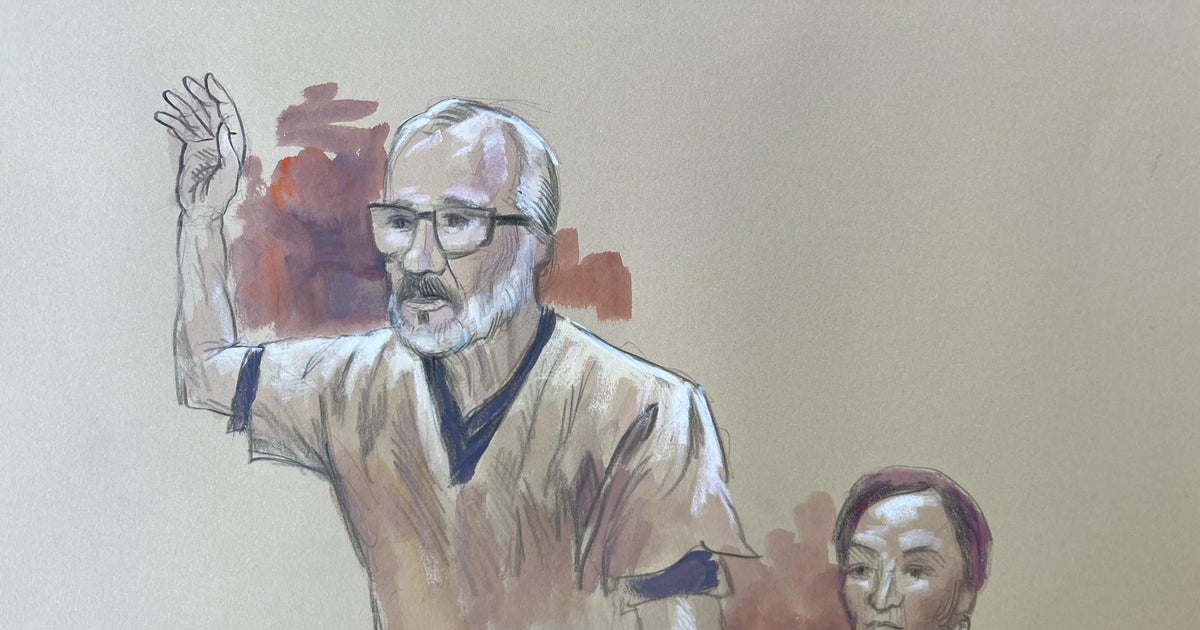
Washington — A former U.S. ambassador formally pleaded guilty Friday to working for Cuba’s spy service for decades and was sentenced to 15 years in prison, bringing a quick end to a case that prosecutors described as one of the longest-running betrayals of the U.S. government in history.
Victor Manuel Rocha, the former U.S. ambassador to Bolivia, was indicted in December on charges that he spied for Cuba’s intelligence agency for more than 40 years. Rocha, who lives in Miami, originally pleaded not guilty in mid-February, then reversed course later that month.
The case’s resolution was briefly in doubt during a hearing on Friday when U.S. District Judge Beth Bloom questioned whether a plea deal Rocha struck with prosecutors was tough enough, since it lacked restitution for possible victims and did not revoke Rocha’s U.S. citizenship. Prosecutors argued that 15 years was sufficient given the 73-year-old would likely die in prison.
The plea deal was ultimately amended to include restitution for potential victims, which will be determined at a later time. Denaturalization is also possible as a civil action down the line.
Rocha’s work for Cuba
Lothar Speer
Little has been revealed about what Rocha did to help the communist regime or how he may have influenced U.S. policy while he worked for the State Department for two decades. He held high-level security clearances that gave him access to top secret information, according to the indictment, which could have made him a valuable asset to Cuba, which has long had hostile relations with the U.S.
But Rocha was not charged with espionage, and instead was accused of acting as a foreign agent, which the Justice Department refers to as “espionage lite.” Acting as a foreign agent carries a shorter prison sentence.
Attorney General Merrick Garland has described the case as “one of the highest-reaching and longest-lasting infiltrations of the U.S. government by a foreign agent.”
Born in Colombia, Rocha moved to New York when he was 10 years old after his father died. His family lived with his uncle in Harlem, supported by his mother’s job in a sweatshop sewing factory and food stamps. In 1965, a scholarship to attend Taft School, an elite boarding school in Connecticut, changed the trajectory of his life, he told the school’s alumni magazine in 2004. But while there, he experienced discrimination and considered suicide after his closest friend refused to be roommates with him over the color of his skin, he said.
Investigators alleged Rocha was recruited by Cuba’s spy agency in Chile in 1973 after he graduated from Yale University. That same year, Chile’s socialist president, Salvador Allende, was ousted in a U.S.-backed coup.
He became a naturalized U.S. citizen in 1978 and also holds degrees from Harvard and Georgetown universities. His career at the State Department began in 1981 and included various positions in Latin America. He briefly held an influential role at the White House National Security Council during the Clinton administration. His career at the State Department culminated in an ambassadorship in Bolivia from 2000 to 2002.
As the ambassador to Bolivia, Rocha warned Bolivians that electing leftist coca farmer Evo Morales, a protege of Fidel Castro, as president would jeopardize U.S. aid to the country. The intervention was credited with helping boost Morales’ standing, and he thanked Rocha for being his “best campaign chief,” the New York Times reported in 2002.
Cuba also fell under Rocha’s purview during his stint at the National Security Council and while he was posted at the U.S. mission in Havana in the 1990s. After leaving the State Department, he was an adviser to the commander of the U.S. Southern Command, whose area of responsibility includes Cuba.
His positions within the government would have given him compartmentalized access to information involving Cuba, including U.S. assessments of the Cuban regime, biographic profiles, details about covert programs run by the U.S. and diplomatic reports from across the world about the Cubans, according to John Feeley, a former U.S. ambassador to Panama who once considered Rocha a mentor.
“He would have been enormously valuable to them,” Feeley told CBS News.
The State Department and the intelligence community are assessing the possible damage to national security, State Department spokesman Matthew Miller told reporters after Rocha’s arrest.
An attorney for Rocha, Jacqueline Arango, did not return a request for comment.
“The shock is complete”
Department of Justice / AP
Details about how the FBI began to suspect Rocha had acted as a covert agent for Cuba are unclear, other than it received a tip before November 2022, according to court documents. In the following months, the agency surveilled Rocha as he met with an undercover FBI agent whom he believed to be a representative of Cuba’s spy agency.
On Nov. 15, 2022, the undercover agent sent the retired diplomat a WhatsApp message “from your friends in Havana,” the documents said.
“I know that you have been a great friend of ours since your time in Chile,” the undercover agent told Rocha in a subsequent phone call. The two agreed to meet in person the next day.
During their conversations over the next year, Rocha referred to the U.S. as “the enemy” and said “what we have done” was “enormous” and “more than a grand slam,” court documents said.
“My number one concern; my number one priority was … any action on the part of Washington that would — would endanger the life of — of the leadership, or the — or the revolution itself,” Rocha allegedly told the undercover agent.
The complaint also alleged that Rocha met with his Cuban handlers as recently as 2017, first flying from Miami to the Dominican Republic using his American passport, then using a Dominican passport to fly to Panama and onto Havana.
Rocha said Cuba’s spy agency had instructed him to “lead a normal life,” and he eventually created a cover story “of a right-wing person” to conceal his double life, according to the complaint.
Feeley, who worked under Rocha when he was the deputy chief of mission for the U.S. Embassy in the Dominican Republic, said in recent years Rocha became an “over-the-top Donald Trump guy.” The two had kept in touch since their posting in the Dominican Republic, but when Feeley last saw Rocha in 2019, the previously apolitical Rocha had “gone down a Trump-MAGA rabbit hole,” as Feeley put it.
“It was really uncomfortable,” Feeley said, adding that he and his former colleagues never suspected it was a cover. “I’ve already been through the whole cycle of grief here. The shock is complete.”
Feeley resigned as U.S. ambassador to Panama in 2018 over policy disputes with the Trump administration.
Rocha did his job well and was generous with his mentoring, but he also had a strong ego and thought he was smarter than others, Feeley said.
On June 23, 2023, Rocha held his last meeting with the undercover FBI agent at an outdoor food court behind a church in Miami. Prosecutors said Rocha became angry when the agent asked, “Are you still with us?”
“I am pissed off,” Rocha allegedly responded, saying it’s “like questioning my manhood. … It’s like you want me to drop them … and show you if I still have testicles.”
Why did a septuagenarian who had managed to escape detection for decades and had long been retired from government service bite so easily at the FBI’s outreach?
“My feeling is that he felt irrelevant,” Feeley said. “You do something for 40 years, it gives you kind of a sense of purpose, and there’s no gold watch at the end of it.”
Ivan Taylor contributed reporting.
CBS News
Biden’s top hostage envoy Roger Carstens in Syria to ask for help in finding Austin Tice
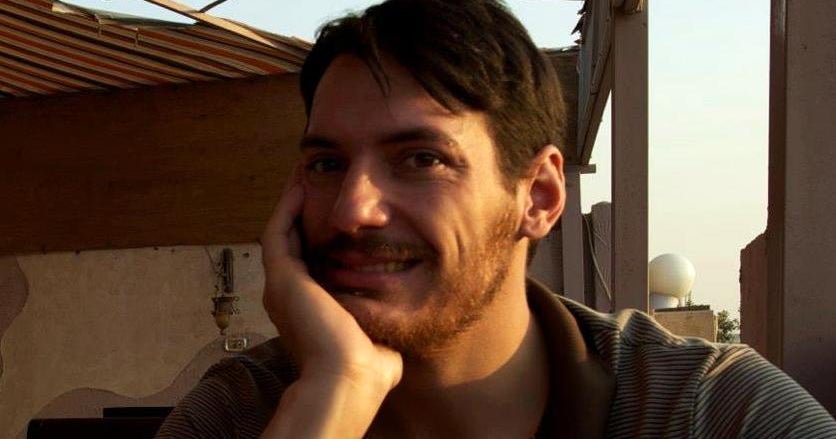
Roger Carstens, the Biden administration’s top official for freeing Americans held overseas, on Friday arrived in Damascus, Syria, for a high-risk mission: making the first known face-to-face contact with the caretaker government and asking for help finding missing American journalist Austin Tice.
Tice was kidnapped in Syria 12 years ago during the civil war and brutal reign of now-deposed Syrian dictator Bashar al-Assad. For years, U.S. officials have said they do not know with certainty whether Tice is still alive, where he is being held or by whom.
The State Department’s top diplomat for the Middle East, Barbara Leaf, assistant secretary of state for Near Eastern Affairs, accompanied Carstens to Damascus as a gesture of broader outreach to Hay’at Tahrir al-Sham, known as HTS, the rebel group that recently overthrew Assad’s regime and is emerging as a leading power.
Near East Senior Adviser Daniel Rubinstein was also with the delegation. They are the first American diplomats to visit Damascus in over a decade, according to a State Department spokesperson.
They plan to meet with HTS representatives to discuss transition principles endorsed by the U.S. and regional partners in Aqaba, Jordan, the spokesperson said. Secretary of State Antony Blinken traveled to Aqaba last week to meet with Middle East leaders and discuss the situation in Syria.
While finding and freeing Tice and other American citizens who disappeared under the Assad regime is the ultimate goal, U.S. officials are downplaying expectations of a breakthrough on this trip. Multiple sources told CBS News that Carstens and Leaf’s intent is to convey U.S. interests to senior HTS leaders, and learn anything they can about Tice.
Rubinstein will lead the U.S. diplomacy in Syria, engaging directly with the Syrian people and key parties in Syria, the State Department spokesperson added.
Diplomatic outreach to HTS comes in a volatile, war-torn region at an uncertain moment. Two sources even compared the potential danger to the expeditionary diplomacy practiced by the late U.S. Ambassador Christopher Stevens, who led outreach to rebels in Benghazi, Libya, in 2012 and was killed in a terrorist attack on a U.S. diplomatic compound and intelligence post.
U.S. special operations forces known as JSOC provided security for the delegation as they traveled by vehicle across the Jordanian border and on the road to Damascus. The convoy was given assurances by HTS that it would be granted safe passage while in Syria, but there remains a threat of attacks by other terrorist groups, including ISIS.
CBS News withheld publication of this story for security concerns at the State Department’s request.
Sending high-level American diplomats to Damascus represents a significant step in reopening U.S.-Syria relations following the fall of the Assad regime less than two weeks ago. Operations at the U.S. embassy in Damascus have been suspended since 2012, shortly after the Assad regime brutally repressed an uprising that became a 14-year civil war and spawned 13 million Syrians to flee the country in one of the largest humanitarian disasters in the world.
The U.S. formally designated HTS, which had ties to al Qaeda, as a foreign terrorist organization in 2018. Its leader, Mohammed al Jolani, was designated as a terrorist by the US in 2013 and prior to that served time in a US prison in Iraq.
Since toppling Assad, HTS has publicly signaled interest in a new more moderate trajectory. Al Jolani even shed his nom de guerre and now uses his legal name, Ahmed al-Sharaa.
U.S. sanctions on HTS linked to those terrorist designations complicate outreach somewhat, but they haven’t prevented American officials from making direct contact with HTS at the direction of President Biden. Blinken recently confirmed that U.S. officials were in touch with HTS representatives prior to Carstens and Leaf’s visit.
“We’ve heard positive statements coming from Mr. Jolani, the leader of HTS,” Blinken told Bloomberg News on Thursday. “But what everyone is focused on is what’s actually happening on the ground, what are they doing? Are they working to build a transition in Syria that brings everyone in?”
In that same interview, Blinken also seemed to dangle the possibility that the U.S. could help lift sanctions on HTS and its leader imposed by the United Nations, if HTS builds what he called an inclusive nonsectarian government and eventually holds elections. The Biden administration is not expected to lift the U.S. terrorist designation before the end of the president’s term on January 20th.
Pentagon spokesperson Pat Ryder disclosed Thursday that the U.S. currently has approximately 2,000 US troops inside of Syria as part of the mission to defeat ISIS, a far higher number than the 900 troops the Biden administration had previously acknowledged. There are at least five U.S. military bases in the north and south of the country.
The Biden administration is concerned that thousands of ISIS prisoners held at a camp known as al-Hol could be freed. It is currently guarded by the Syrian Democratic forces, Kurdish allies of the U.S. who are wary of the newly-powerful HTS. The situation on the ground is rapidly changing since Russia and Iran withdrew military support from the Assad regime, which has reset the balance of power. Turkey, which has been a sometimes problematic U.S. ally, has been a conduit to HTS and is emerging as a power broker.
A high-risk mission like this is unusual for the typically risk averse Biden administration, which has exercised consistently restrained diplomacy. Blinken approved Carstens and Leaf’s trip and relevant congressional leaders were briefed on it days ago.
“I think it’s important to have direct communication, it’s important to speak as clearly as possible, to listen, to make sure that we understand as best we can where they’re going and where they want to go,” Blinken said Thursday.
At a news conference in Moscow Thursday, Russian President Vladimir Putin said he had not yet met with Assad, who fled to Russia when his regime fell earlier this month. Putin added that he would ask Assad about Austin Tice when they do meet.
Tice, a Marine Corps veteran, worked for multiple news organizations including CBS News.
CBS News
12/19: CBS Evening News – CBS News

Watch CBS News
Be the first to know
Get browser notifications for breaking news, live events, and exclusive reporting.
CBS News
Delivering Tomorrow: talabat’s Evolution in the Middle East

Watch CBS News
Be the first to know
Get browser notifications for breaking news, live events, and exclusive reporting.



